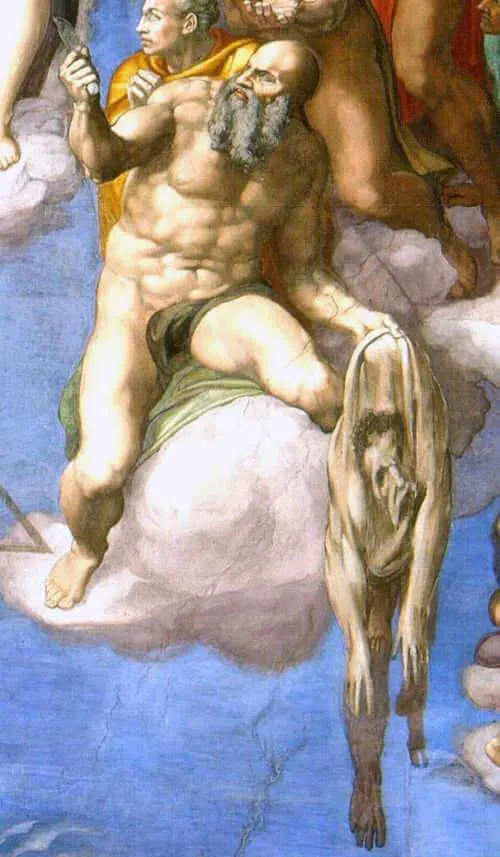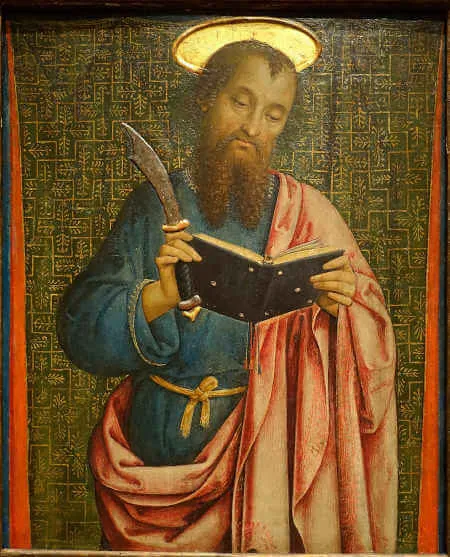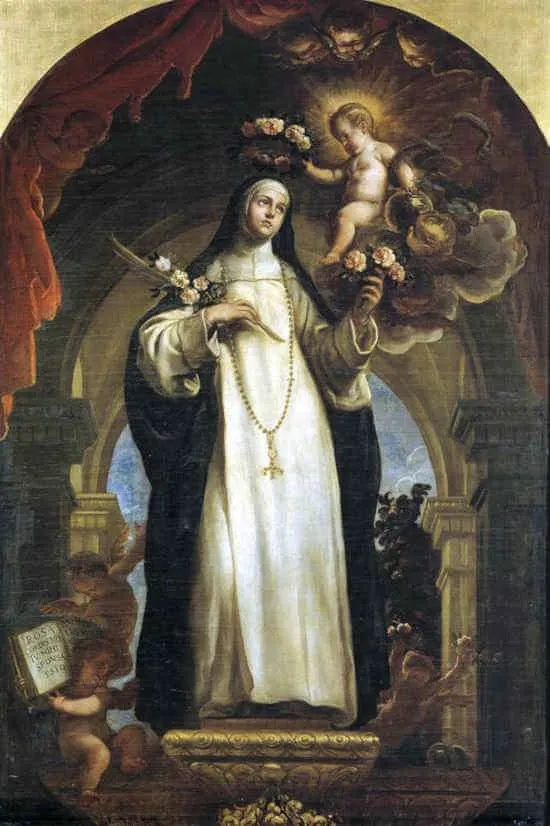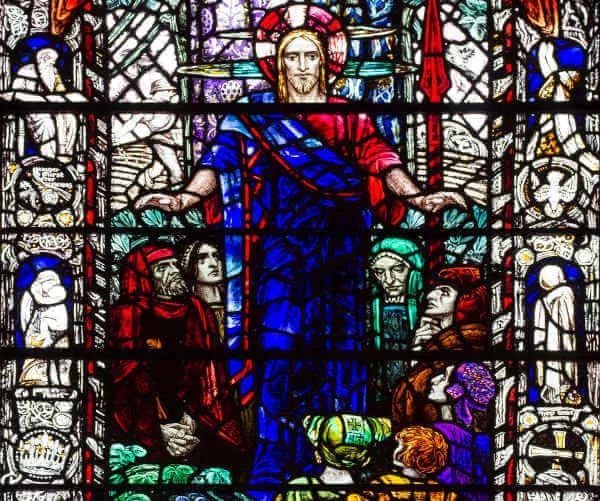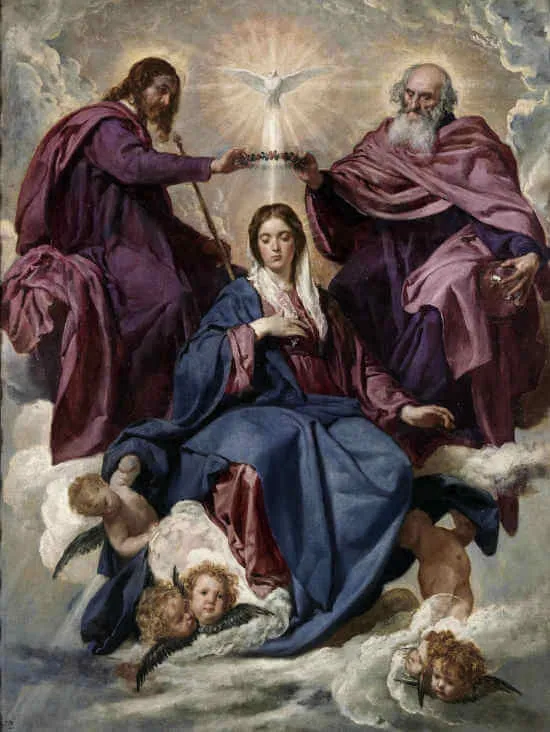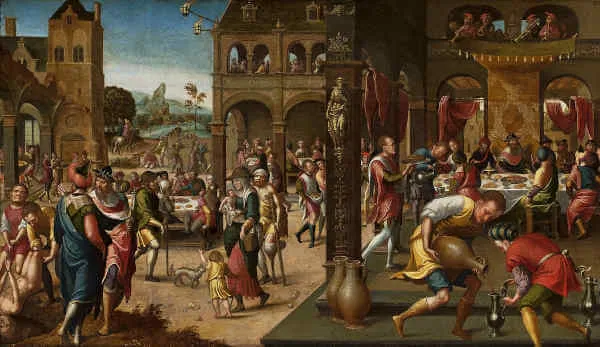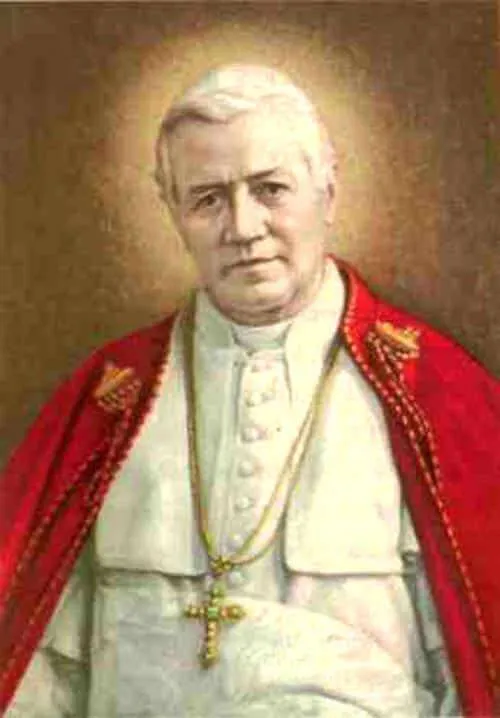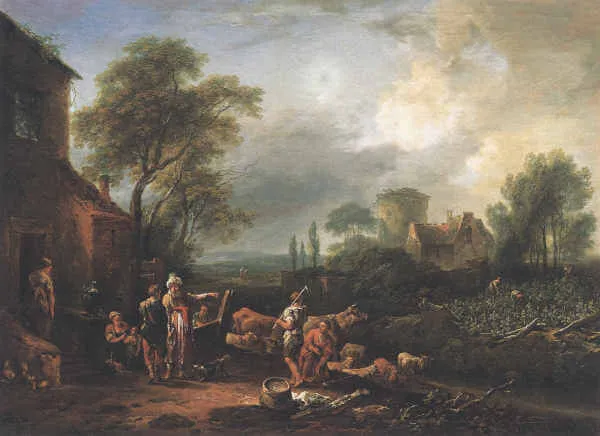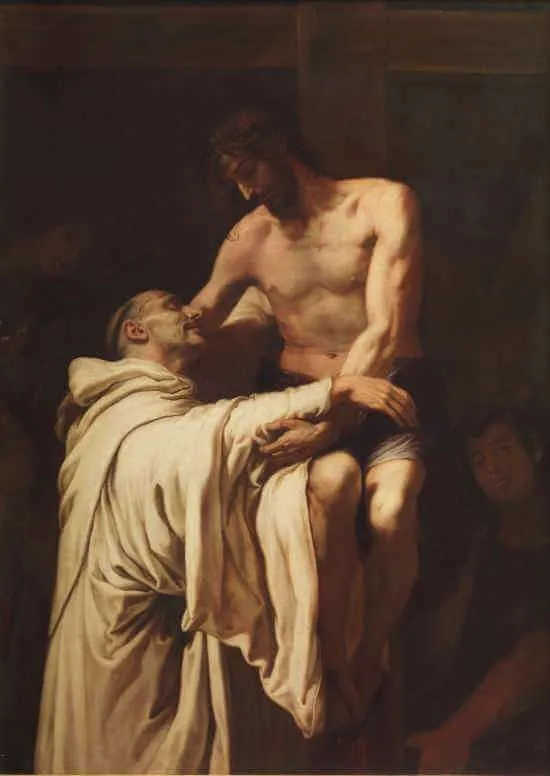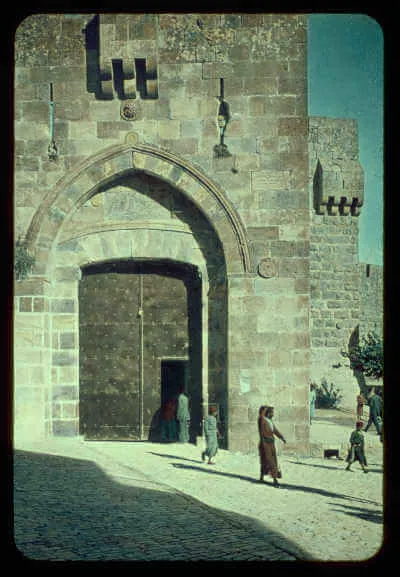Saint Bartholomew the Apostle
First Century; Patron Saint of bookbinders, butchers, cobblers, leatherworkers, plasterers, shoemakers, tanners, trappers, and whiteners; Invoked against neurological diseases; Pre-Congregation canonization
Today, the Church honors one of the Twelve Apostles whom Jesus handpicked to form His Church and to go forth to the ends of the earth to share the Good News. Bartholomew, as he is named in the Synoptic Gospels, is most likely not his actual name, but a description of his lineage. His name in Aramaic is bar-Tôlmay, which is translated as “son of Tolmai.” While there are mentions of others named Tolmai in the Old Testament, nothing is known about Bartholomew’s father or background. Though nothing is certain about “Bartholomew,” most scholars agree that the Bartholomew mentioned in the Synoptics is the same person as Nathanael in John’s Gospel. Hence, it might be that “Nathanael, the son of Tolmai,” is the full name of today’s saint.
The only mentions of Bartholomew in the Synoptic Gospels are in the lists of the Apostles (Matthew 10:2–4, Mark 3:16–19, and Luke 6:14–16). The Acts of the Apostles mentions him as one of the Apostles present in Jerusalem after Jesus’ ascension (Acts 1:13). In John’s Gospel, there are only two mentions of Nathanael (John 1:45–51 and John 21:2). The former relates the calling of Nathanael, and the latter identifies him as one of the seven who were present when Jesus appeared to them at the Sea of Galilee after His resurrection. Although the most significant thing we know about Nathanael from these passages is that he was chosen by our Lord to be one of the Twelve Apostles, the story of his calling and the discourse he has with Jesus provides much to ponder.
In John 1:43–51, we read that Jesus found Philip when He went to Galilee and simply said to him, “Follow me.” Philip appears to immediately follow. Philip is so excited that he finds Nathanael, who might have been his friend or relative. He says to Nathanael, “We have found the one about whom Moses wrote in the law, and also the prophets, Jesus, son of Joseph, from Nazareth.” This was the first time Nathanael heard the beginnings of the Good News, which he would later preach with all his heart. Like many people, Nathanael is initially skeptical. He retorts, “Can anything good come from Nazareth?” Philip’s response is ideal and clearly inspired by the Holy Spirit. Philip tells Nathanael, “Come and see.” And that’s what Nathanael does.
It’s important to pause here and ponder Nathanael’s response to his first invitation to come to Jesus. “Come and see” is a phrase that applies to all of us. In countless ways, God sends us that invitation every day. It’s not enough to simply hear about Jesus. It’s not enough to only read about Him, or even to study Him. We must come to meet Him, meet the Person, and encounter Him. Nathanael did this in human form; we are invited to do it in somewhat the same way.
Because of His Incarnation, the Son of God is able to come to us, personally, truly, and substantially. When we pray, we do not only speak or listen to a distant god. We are able to come to the true God Who is able to communicate to us in a way that will convince us of His love, so that we will follow Him with our whole being. This is what happened to Nathanael. Yes, he saw the physical presence of the Son of God with his eyes, but just as in our case, the Son of God came to Nathanael in hidden form. Jesus did not radiate light, He was not continuously transfigured in glory. He was hidden in the form of a man, yet truly present as God. So it is with us. Every time we turn to our Lord in prayer, attend the Holy Mass, adore the Holy Eucharist, or read the Living Word of the Bible, we encounter the same God whom Nathanael did that first day.
When Nathanael came to Jesus, Jesus said to him, “Here is a true Israelite. There is no duplicity in him.” Jesus had read Nathanael’s heart and revealed it to him. Nathanael inquired further about how Jesus knew him, and Jesus replied that He had seen Nathanael sitting under a fig tree. That’s all Jesus said! Nonetheless, this touched Nathanael so deeply that, with this short comment from Jesus, Nathanael was converted. He cries out, “Rabbi, you are the Son of God; you are the King of Israel.” It wasn’t Jesus’ words that touched Nathanael, it was His divine Person, masked behind His human form. Nathanael’s soul perceived the presence of God in Jesus, and he immediately became His follower. We must do the same.
As one of the Twelve, Nathanael accompanied Jesus throughout his public ministry. He learned from Him, was formed by Him, and gave his life to Him. He witnessed Jesus’ arrest, experienced His death from a distance, and then saw Him resurrected with his own eyes. When Jesus ascended to Heaven, Nathanael was among those whom Jesus told, “But you will receive power when the Holy Spirit comes upon you, and you will be my witnesses in Jerusalem, throughout Judea and Samaria, and to the ends of the earth” (Acts 1:8). And, “Go, therefore, and make disciples of all nations, baptizing them in the name of the Father, and of the Son, and of the Holy Spirit, teaching them to observe all that I have commanded you. And behold, I am with you always, until the end of the age” (Matthew 28:19–20).
Though we do not know for certain how Nathanael, son of Tolmai (Bartholomew), fulfilled this Great Commission that he received from Jesus Himself, one early tradition from Eusebius of Caesarea, a Church historian from the third to fourth century, stated that he went to India where he left a copy of the Gospel of Matthew. Later traditions state that he also went to Armenia, Ethiopia, Mesopotamia, Parthia, and Lycaonia. Some traditions say that he was martyred in a city named Albanopolis, which might be one of two ancient towns either in modern-day Armenia or Albania. Those traditions state that he was beheaded or flayed alive and crucified upside down in retribution for converting the King of Armenia. It is for this reason that Saint Bartholomew often appears in sacred art holding his skin, such as in Michelangelo’s Last Judgment scene found in the Sistine Chapel at the Vatican.
Though legends are hard to prove or disprove, what we know for certain is that when this man met Jesus Christ, the Son of God, the King of Israel, his life was forever changed. The same must be said of each one of us. We must meet our Lord, encounter Him personally, allow His divine presence to change our lives, and never look back. Ponder your own willingness to imitate the conversion of Saint Bartholomew and seek his intercession today.
Source: https://mycatholic.life/saints/saints-of-the-liturgical-year/saint-bartholomew—august-24/
Saint Bartholomew the Apostle Read More »


